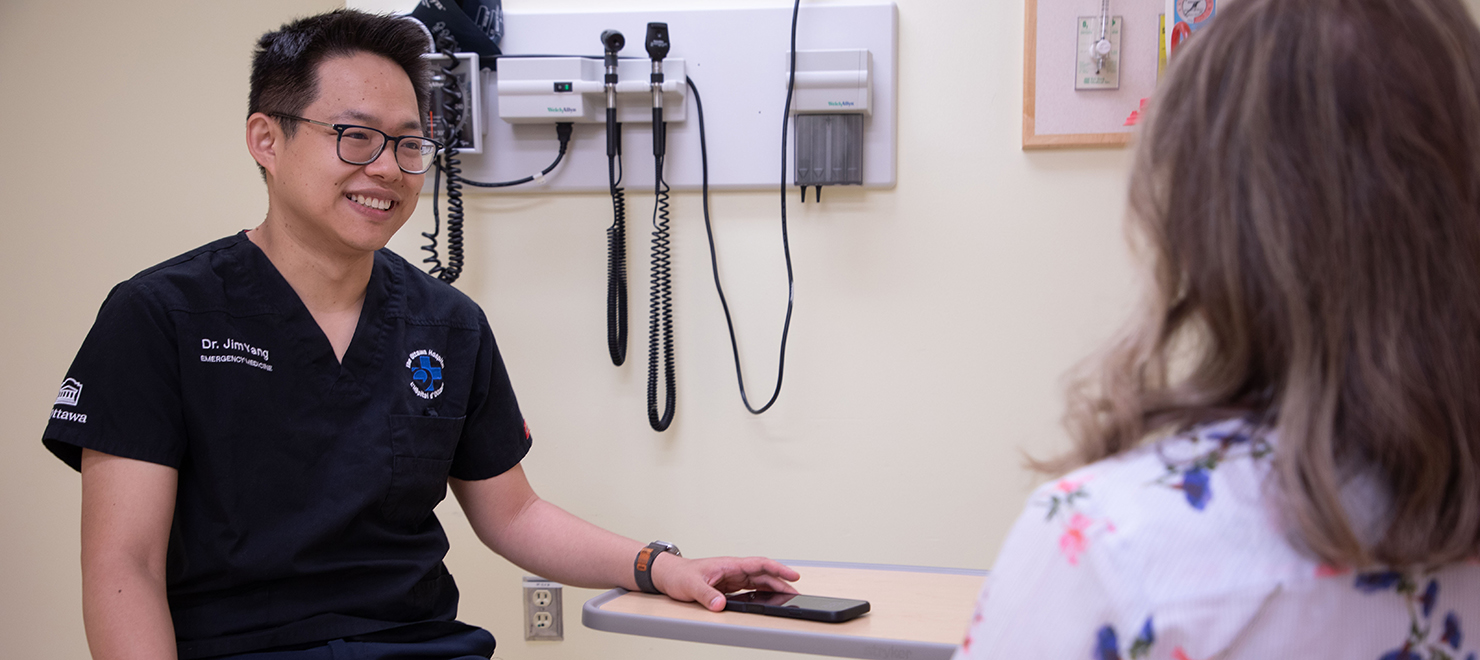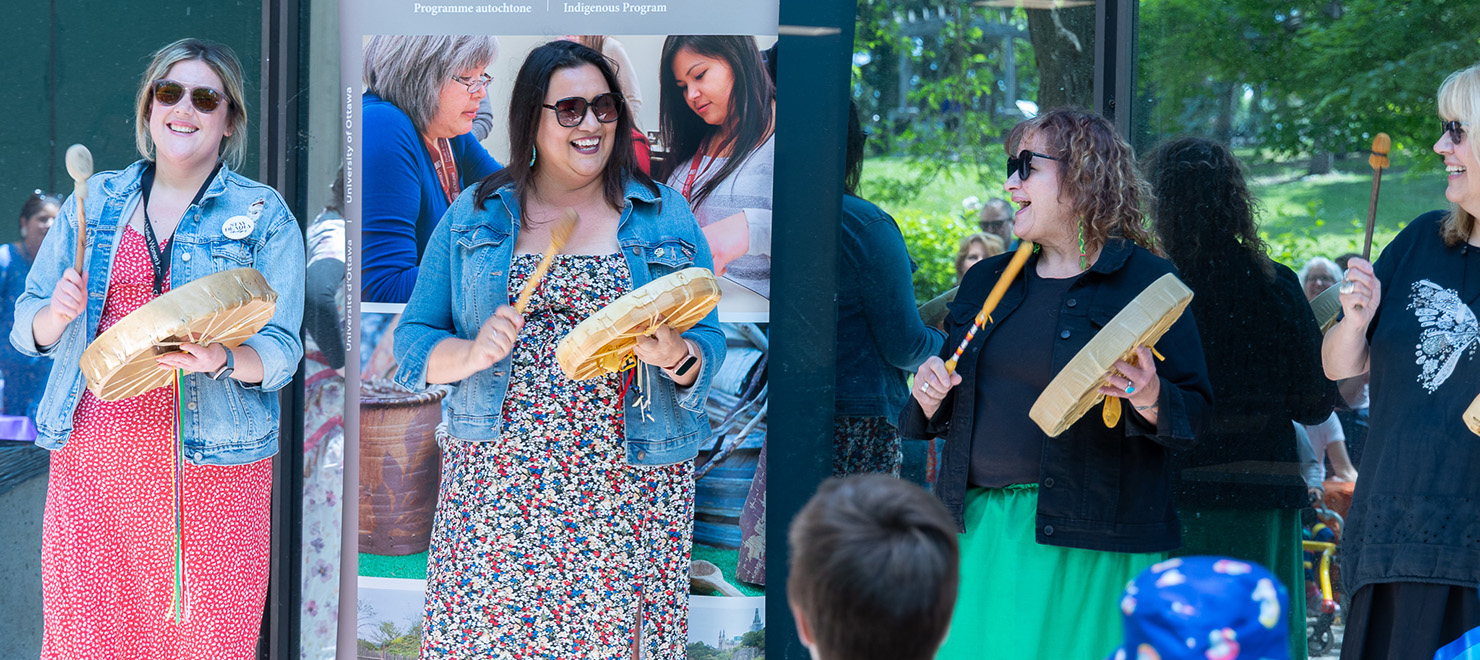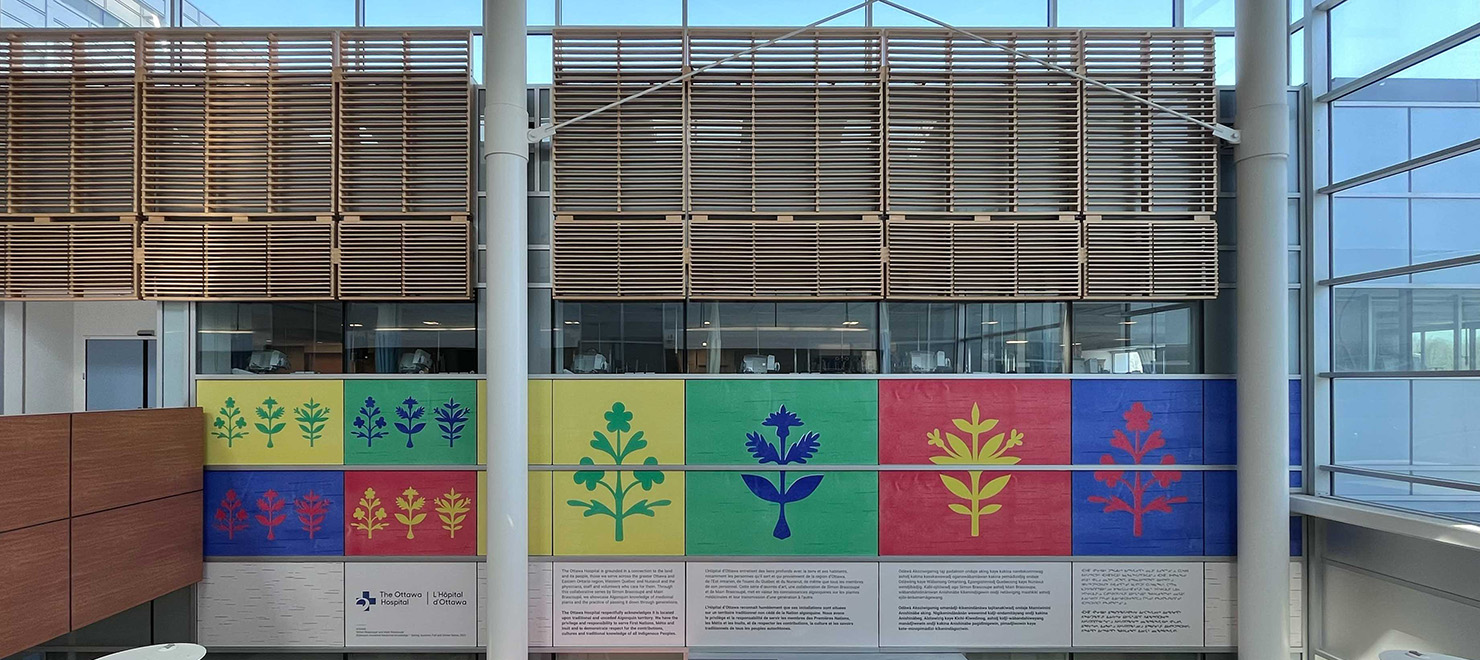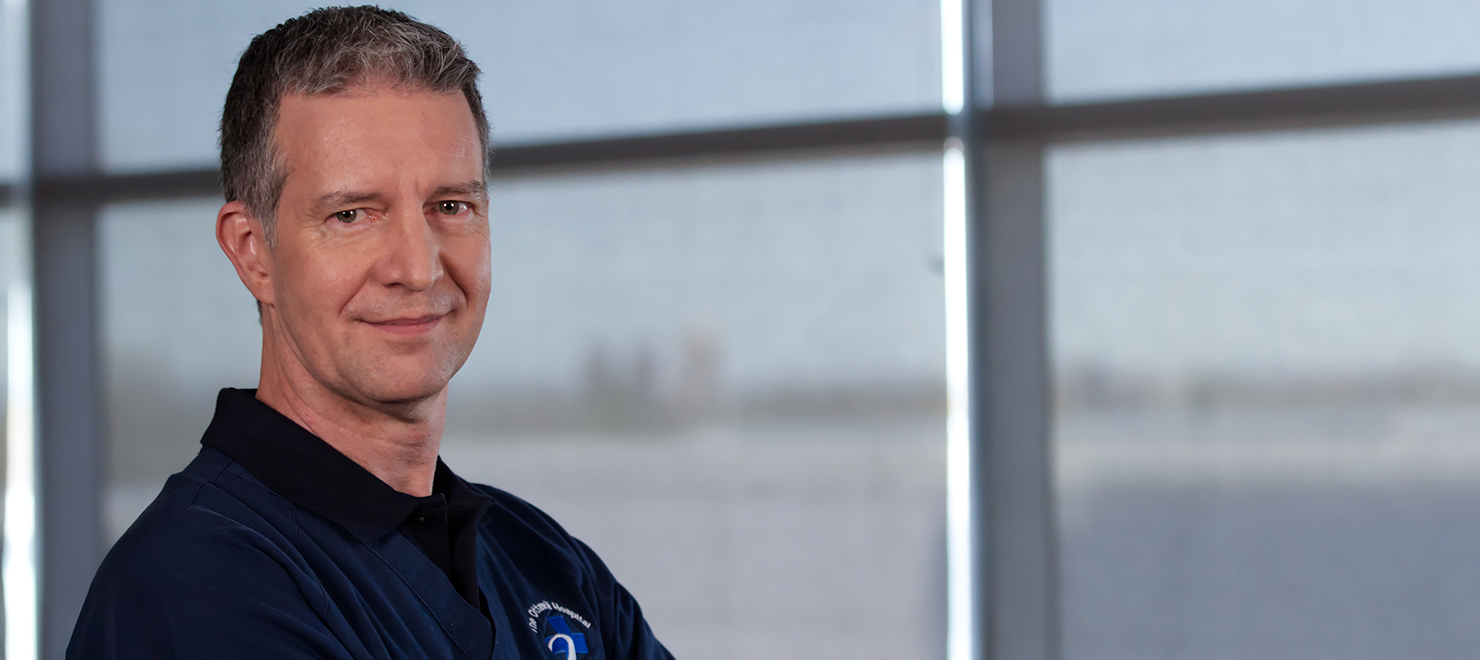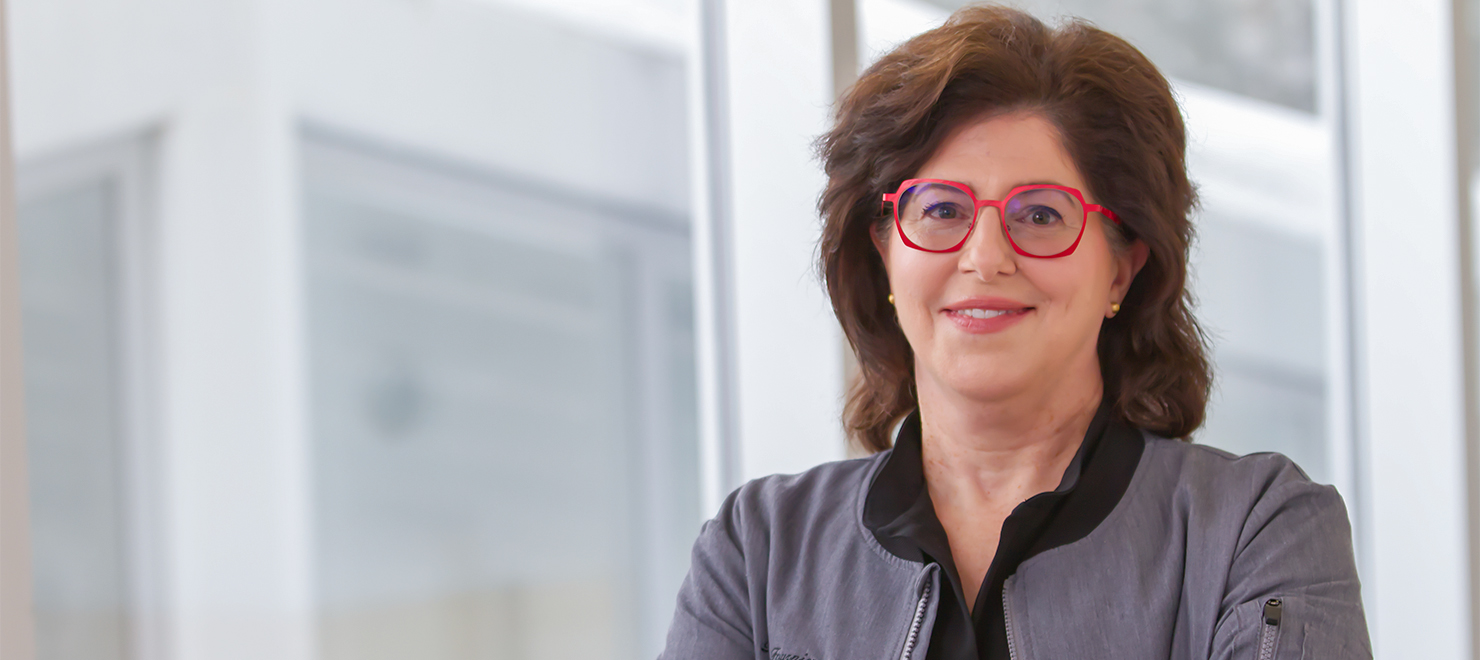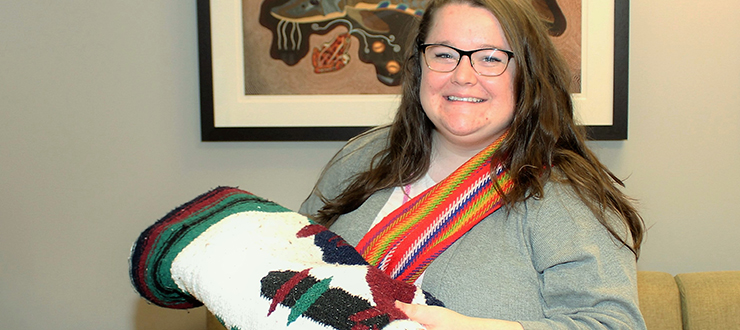
Megan Ellis, Indigenous Program Coordinator, has been leading the KAIROS Blanket Exercise with groups of staff from The Ottawa Hospital. She wears her red sash to show her Métis heritage.
It moves some to tears. Others are shocked, yet hopeful. Anger, guilt and shame can also come with the heightened awareness hospital staff members have after taking part in the KAIROS Blanket Exercise.
The interactive exercise – developed by KAIROS, an ecumenical social justice group – retells 500 years of Canada’s history through the perspective of First Nations, Inuit and Métis. Staff members stand on blankets that represent all the land controlled by Indigenous people when settlers first came to what is now Canada. By the end, they are standing on small islands of folded blankets, illustrating the dispossession of land and all that Indigenous people lost.
During the exercise, staff are asked to step off the blankets, as they represent children adopted as part of the ‘Sixties Scoop,’ children who died at residential schools, people who died from smallpox, and so on.
A group discussion followed the exercise. Many participants expressed dismay that they never learned this history in school and it’s still not always taught to their children today. Many did not know, for example, that sled dogs were shot so the Inuit could not pursue their traditional hunting. Or that blankets were purposely infected with smallpox and handed out to Indigenous people. Or that nutrition experiments were conducted on children at residential schools.

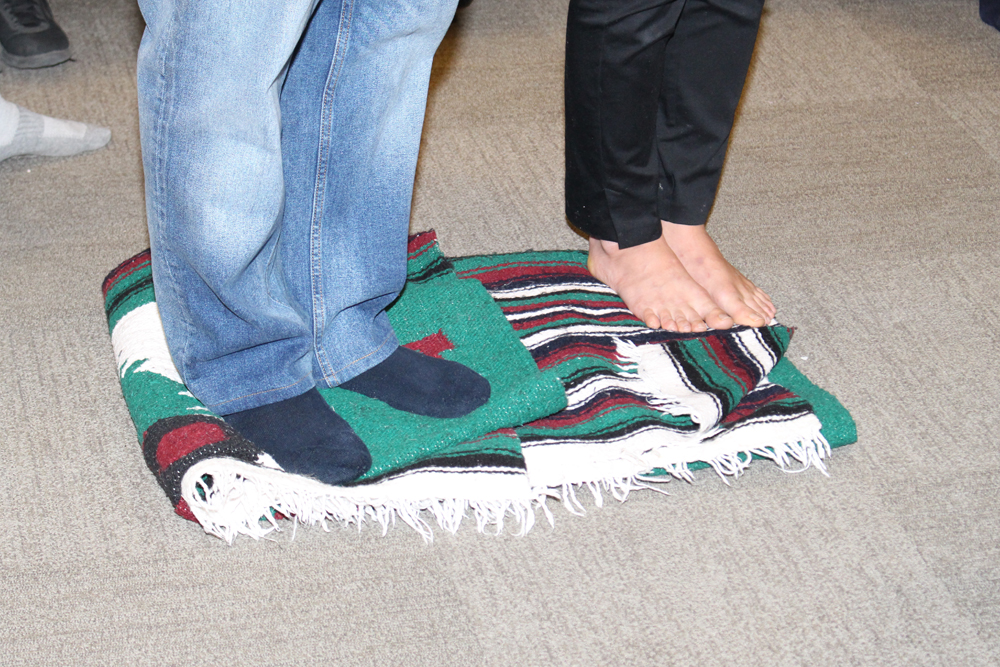
Staff members stand on blankets that represent all the land controlled by Indigenous people. They had lots of land at the start, when settlers first came to what is now Canada, but they have much smaller, unconnected islands of land now.
“As Canadians, it’s part of our story, something we have to carry with us,” said Megan Ellis, Indigenous Program Coordinator, who led the exercise. “We all have to carry on and move forward in a good way.”
“This exercise is not to make you feel guilty, but to more fully understand Indigenous people, and where they’ve come from, the traumas they’ve been through and how to provide culturally sensitive care,” explained Gwen Barton, Manager of Patient Experience in the Cancer Program.
Ellis, Barton, Dr. Treena Greene, Regional Indigenous Cancer Lead, and Indigenous Patient Navigator Carolyn Roberts are offering the KAIROS Blanket Exercise to groups of staff, doctors and volunteers to raise awareness about the traumas that Indigenous patients have gone through. So far, about 90 staff members have taken part. They are encouraged to incorporate that knowledge into their patient care.
“If you’ve treated an Indigenous patient around age 50 or older, odds are they’ve attended residential school,” said Roberts. “There are reasons why people behave the way they do.”
Lucie Zabchuk, Coordinator of Volunteer Resources at the Civic Campus, took part in the exercise in May.
“I felt like crying,” said Zabchuk, who represented children who died at residential schools. “I think everyone should go through this. We can’t forget our history, but it gives me hope that we can make it better.”

As part of the KAIROS Blanket Exercise, staff members were asked to step off the blankets, as they represented, for example, children who died at residential school.
“Several of my staff members described the exercise as a life-changing and intense experience,” said Julie Renaud, Manager in Radiation Therapy.
Some of the biggest questions people have after going through the exercise are “What changes can we make here? What’s next?”
Cancer Program staff are making a difference to Indigenous patient care at The Ottawa Hospital. Inuit patients from Nunavut, for example, come to The Ottawa Hospital for cancer treatment, but have trouble getting back home for palliative care. Roberts has intervened in many cases to enable patients to die at home, surrounded by their extended families.
Managers who would like to schedule the KAIROS Blanket Exercise for their group, or those who would like more information, should email Megan Ellis.

Support patient care and research at
The Ottawa Hospital
You might also like…
Less time charting means more time with patients: How The Ottawa Hospital is using AI to support patient care
“I’m seeing and treating more patients.” Find out how DAX Copilot, a powerful AI assistant, is helping our physicians cut down on paperwork, improve their own well-being and spend more time with patients.
Celebrating the summer solstice and National Indigenous Peoples Day: A photo essay
The summer solstice has deep spiritual and cultural significance for Indigenous communities around the world. Last week, we joined CHEO and uOttawa for a special celebration to mark this important time of year, and to recognize the rich cultures of First Nation, Inuit and Métis Peoples.
Aging well: Guidance for older adults
In this special video series for both older adults and their loved ones, geriatric care specialists from The Ottawa Hospital offer guidance on navigating common health-care challenges that may arise with aging.
A guide to services at The Ottawa Hospital for Indigenous patients and families
At The Ottawa Hospital, we are committed to providing culturally safe care for First Nation, Inuit and Métis patients and families. We are working with Indigenous partners to identify ways we can make your time in hospital more welcoming. Here are some of the ways we’re doing that now.
How to stay safe around water this summer
Drowning can happen to anyone — even strong swimmers. Emergency physician Dr. Christian Vaillancourt debunks common myths about drowning, explains how to act quickly to save a life, and shares what you can do to keep yourself and your loved ones safe around water.
What’s the difference between an optician, optometrist, orthoptist and ophthalmologist?
“Do I need to see an optician, optometrist, orthoptist or ophthalmologist?” We asked Ophthalmologist Dr. Annick Fournier to break down each role so you will know who to consult for your specific eye care needs.


 To reset, hold the Ctrl key, then press 0.
To reset, hold the Ctrl key, then press 0.
